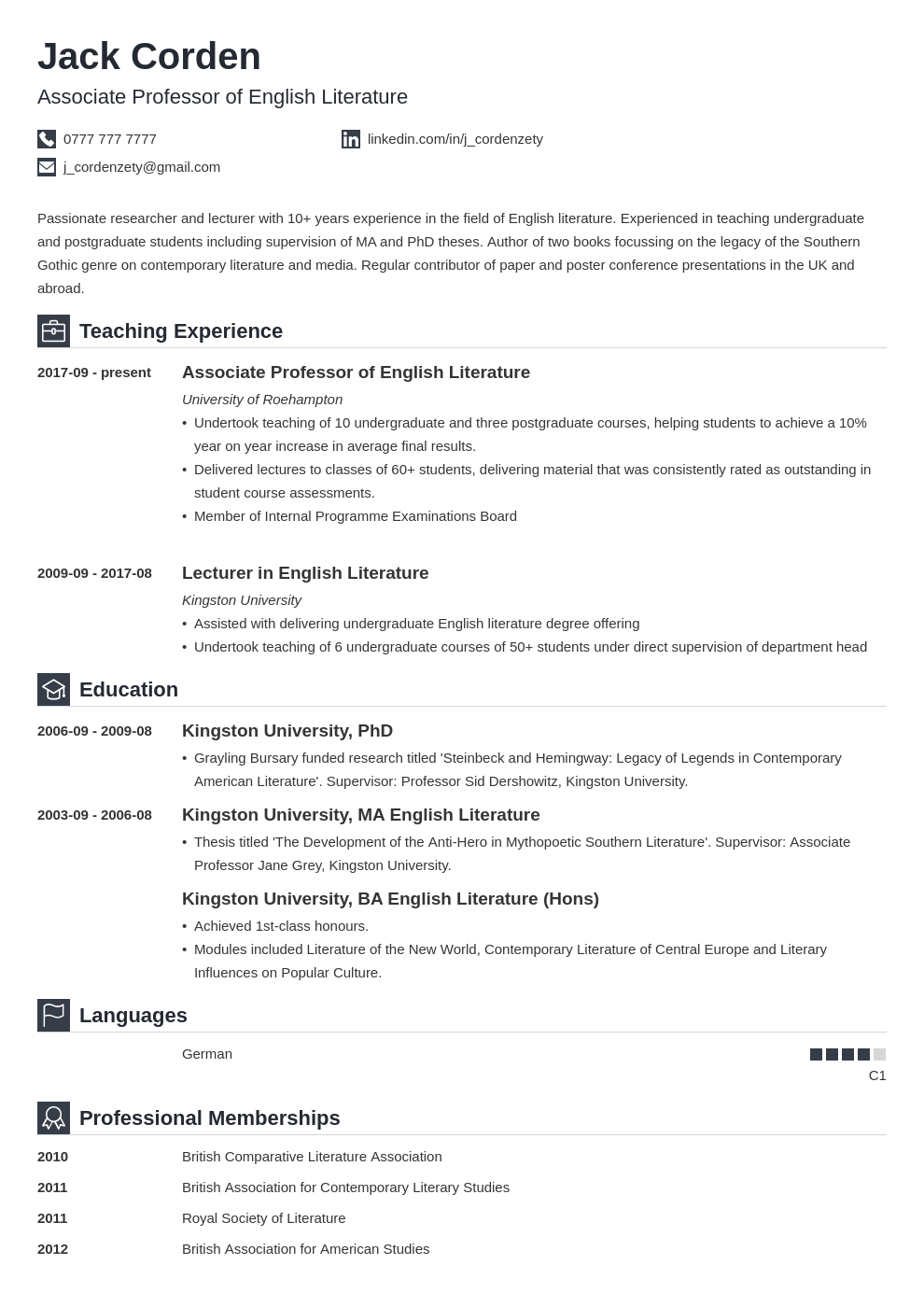So, you’re eyeing that dream postgraduate program, perhaps a Master’s or even a PhD. That’s fantastic! But before you dive into researching dissertations and securing recommendations, there’s one crucial document that often stands between you and that acceptance letter: your curriculum vitae. It’s not just any CV though; applying for higher education requires a specialized approach, one that truly showcases your academic prowess and research potential rather than just your work history.
Navigating the application process can feel overwhelming, especially when it comes to presenting your academic journey in the most compelling way. Unlike a professional job application, a postgraduate CV needs to highlight different facets of your experience and achievements. It’s about demonstrating your readiness for advanced study, your capacity for independent research, and your alignment with the program’s academic focus.
Crafting Your Postgraduate CV: Beyond the Basics
When you’re preparing for a postgraduate application, your CV isn’t just a list of jobs you’ve held. It’s an academic narrative, a document designed to convince professors and admissions committees that you possess the intellectual curiosity, research skills, and dedication required to excel in a rigorous academic environment. Think of it as your academic autobiography, meticulously detailing your journey and aspirations within the scholarly world. This means shifting your focus from professional achievements to your scholarly contributions and potential.
This specialized CV needs to emphasize your educational background, research experience, publications, presentations, and any academic honors or scholarships you’ve received. While work experience can be included, it should be framed in terms of transferable skills relevant to academic study, such as critical thinking, problem-solving, or project management. The goal is to paint a clear picture of you as a serious scholar, ready for the challenges of advanced learning and original research.
Highlighting Your Academic Prowess
Your academic section should be the star of the show. Don’t just list your degrees; provide context. Mention your thesis title, significant projects, relevant coursework, and any specific modules where you excelled. If you’ve maintained a high GPA, absolutely feature it. Academic awards, scholarships, or dean’s list mentions are also vital. This demonstrates your consistent dedication to academic excellence.

Moreover, if you have any research experience, even from undergraduate projects, that needs to be prominently featured. Describe your role, the methodology used, and the outcomes. Did you contribute to a lab experiment, conduct a literature review, or assist with data analysis? Be specific about your responsibilities and achievements. This is what truly sets a postgraduate CV apart.
- Educational Background: List degrees, institutions, dates, and relevant academic distinctions (e.g., GPA, honors, thesis title).
- Research Experience: Detail any research projects, internships, or assistantships. Include your role, responsibilities, methods, and outcomes.
- Publications/Presentations: If you’ve co-authored a paper, presented at a conference, or even contributed to a departmental report, include it here.
- Academic Awards and Scholarships: Mention any recognition for your academic achievements.
- Relevant Skills: Highlight research software, statistical packages, laboratory techniques, or foreign language proficiencies.
Essential Elements of an Effective Postgraduate CV Template
A well-structured cv template for postgraduate application provides a clear, concise, and compelling overview of your qualifications. It guides the admissions committee through your academic journey, making it easy for them to identify why you are a strong candidate for their program. While templates offer a fantastic starting point, remember that tailoring each application to the specific program is key. This means understanding the program’s research interests and faculty specializations and then aligning your CV to reflect how your background complements these areas.
Begin with your contact information, ensuring it’s professional and up-to-date. Following that, a concise personal statement or research objective can be incredibly effective. This short paragraph allows you to articulate your academic goals, research interests, and why you are applying to this specific program. It’s your elevator pitch to the admissions committee, so make it impactful and tailored.
Next, dedicate ample space to your education, as discussed earlier, providing details beyond just degree titles. The research experience section is equally critical; this is where you showcase your hands-on involvement in academic inquiry. List any publications or presentations, even if they are internal university reports or student conference posters, as they demonstrate your engagement with the academic community.
Finally, include a section for relevant skills, such as statistical software proficiency, laboratory techniques, or specific programming languages pertinent to your field. Don’t forget references; typically, you’ll list "References available upon request," but sometimes specific requirements will ask for names and contact details upfront. Remember, every section of your CV should contribute to the narrative of you as a dedicated and capable postgraduate student.
- Contact Information: Name, phone, email, professional LinkedIn profile (optional).
- Personal Statement/Research Objective: A brief paragraph outlining your academic goals and research interests.
- Education: Detailed account of degrees, institutions, dates, and academic achievements.
- Research Experience: Chronological list of research projects, including your role and contributions.
- Publications and Presentations: List any academic outputs, co-authored papers, or conference presentations.
- Relevant Skills: Academic software, lab techniques, languages, or other pertinent abilities.
- Awards and Honors: Academic scholarships, grants, or distinctions.
- References: Typically "References available upon request" or specific contact details if required.
Taking the time to craft a truly exceptional CV is an investment in your academic future. It’s your opportunity to shine a spotlight on your unique academic journey and demonstrate your readiness for advanced study. Remember, clarity, conciseness, and relevance are your guiding principles.
By meticulously preparing this document, you are not just listing your past achievements; you are proactively shaping the perception of your potential. A strong, well-organized CV speaks volumes about your dedication, attention to detail, and serious commitment to your academic aspirations, ultimately paving the way for your next big step in higher education.
